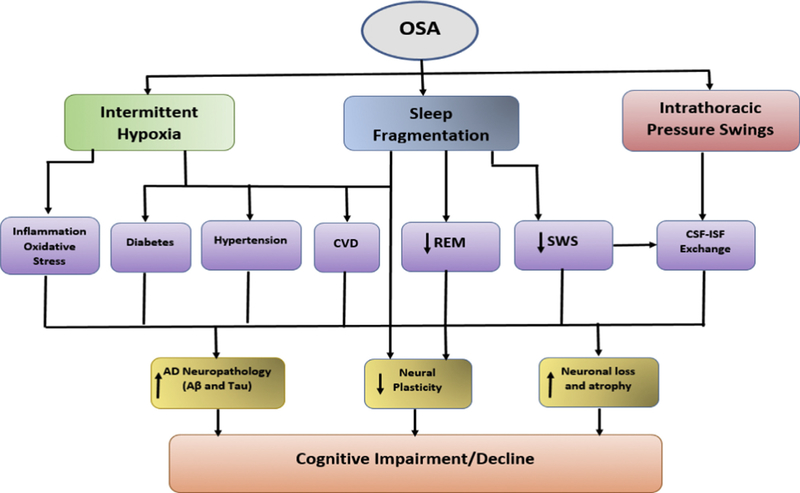Fig. 3.
Possible intermediate mechanisms in the relationship between OSA and Cognitive dysfunction in older adults. Chronic exposure to intermittent hypoxia may lead to increased inflammation and oxidative stress, diabetes, hypertension and CVD, all potentially contributing to AD pathology development. Sleep fragmentation, both by itself and by leading to decreased REM and SWS stages, can additionally promote AD pathogenesis. Intrathoracic pressure swings associated with OSA may disrupt CSF-ISF exchange integrity and lead to AD neuropathology accumulation. Furthermore, all the processes including hypoxia, fragmented sleep and intrathoracic pressure swings can cumulatively lead to decreased neural plasticity and neuronal loss and atrophy, thereby contributing to cognitive dysfunction. OSA, obstructive sleep apnea; CVD, cardiovascular disease; REM, rapid eye movement; SWS, slow wave sleep; CSF-ISF, cerebrospinal fluid-interstitial fluid; AD, Alzheimer’s disease.

